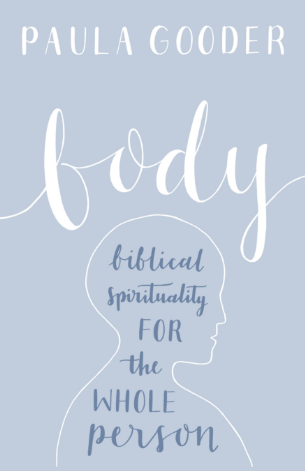The relationship between body and soul
'Delightful and erudite book' from Paula Gooder
 Body: Biblical spirituality for the whole person
Body: Biblical spirituality for the whole person
By Paula Gooder
SPCK, 2016
ISBN 978-0-281-07100-5
Reviewed by the Revd Dr Paul Goodliff
This delightful and erudite book handles many of those questions that disturb (or, at least, should disturb) us today: what is the relationship of the body and soul and/or spirit? What happens to me when I die? How should I value my body now?
These questions arise because our wider culture has found entirely spurious answers to them, and Christians are not immune to imbibing them whole. It proclaims that we are the simple sum of our neurological impulses, that there is no such thing as a soul, but merely ‘brain functions.’ It also, perversely, holds to a rather folksy idea that when we die we ‘go to heaven’, or even, God help us, become little angels! And as for the body, it is something to be altered so as to avoid the signs of aging, to be abused by gluttony or worshipped by daily ministrations in the gymnasium.
Paula Gooder, with clarity of Biblical insight and Pauline exegesis, faithfulness to the Christian tradition, and always with an eye to the questions that need to be answered, has supplied us with a model of concise biblical theology. While it is replete with all the usual academic apparatus of endnotes, references and so forth, it should not be viewed as simply an exercise in academic theology. It is written with such clarity, that I would gladly place it in the hands of any reasonably well-educated Christian and expect them to understand it quite straightforwardly.
It owes much to that most welcome tradition now evident amongst more conservative and evangelical Christian academics (I would number Tom Wright and Rowan Williams in that company) that those whose lives are lived in the academy are able and willing to write with great assurance for those whose lives are not. So, while this book would not be out of place on the reading list for any theological student or seminarian (as a piece of lucid Pauline theology to accompany the late John A. T. Robinson’s earlier work, The Body, SCM 1952), it would also find a welcome place on the bedside table of the average Christian believer. It deserves that wide audience, at least.
Gooder starts with the social malaise that surrounds our attitudes to our physical bodies, and quickly turns to St Paul for the remedy. She discusses the relationship of soul to the body, and the destination of both in the age to come. The issue of what it means to be spiritual (most definitely it does not imply ignoring, or, worst, abusing the body), and to live ‘in the Spirit’, to use a typical Pauline expression, are discussed, while what it means for me to be “me”, and the more important question, what does it mean for us to be “us” in the body of Christ, are given expression too.
She concludes with the wish that, “in our Christian communities we are so used to celebrating our glorious, saggy, ageing, but soon to be transformed, bodies that we all model a confident, true beauty. A beauty that is found in integrity of relationships; in a deep integration of who we are as individuals and as a community; a beauty that does not fear age and can look suffering in the face with courage. A beauty that finds its roots in the compassion of God and shines glory into the darkest crevices of our world. A beauty that is Christ shaped and marked by faith, hope and, above all, love.” (p. 132)
Go on, get yourself a copy and allow your imagination and faith to be re-invigorated by this book. When at a mere 86 pages, Rowan Williams’ latest book is retailed by SPCK at £8.99, just one pound more for this book at more than five times its length seems remarkably good value. (That Williams book, Being Disciples, is worth it too, by the way….)
The Revd Dr Paul Goodliff is a minister at Abingdon Baptist Church
Baptist Times, 14/10/2016